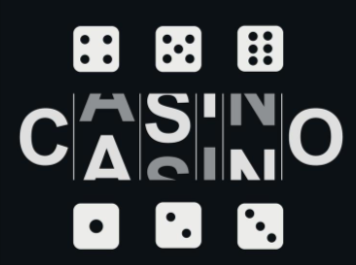The Illusion of Control
“I can stop at any time.” It’s a phrase that echoes through casinos both online and offline. On the surface, it suggests control, autonomy, and awareness. But beneath this confident exterior lies one of the most dangerous misconceptions in the world of gambling. Casino platforms like rabonacasino-greece.gr recognize the importance of addressing this belief and provide tools to educate and protect players.
This article dissects the layers of psychological defense, cognitive dissonance, and behavioral patterns masked behind the infamous phrase. With expert opinions, personal stories, and neuroscience-backed insights, we reveal why this self-assured statement is a major red flag in gambling behavior.
Understanding the Nature of Denial
What Is Psychological Denial?
Denial is a defense mechanism used by the brain to avoid confronting uncomfortable truths. In the gambling world, it often presents as an overestimation of control and minimization of problem behavior.
The Function of the Phrase
When players say, “I can stop at any time,” they are often trying to reassure others – or themselves – that they are not addicted. This statement acts as a shield against scrutiny, internal guilt, or external intervention.
The Neuroscience of Self-Deception
Dopamine and the Pleasure Loop
Gambling triggers the brain’s reward system, releasing dopamine. Over time, players associate risk with reward, making it harder to disconnect even when losses mount. The phrase becomes a rationalization tool.
Diminished Prefrontal Cortex Activity
Prolonged gambling reduces the effectiveness of the prefrontal cortex – the part of the brain responsible for impulse control. This means that belief in stopping becomes less grounded in neurological reality.
Cognitive Biases and Control Illusions
The Control Fallacy
Players believe they are in control of random outcomes. This illusion feeds the confidence behind the “I can stop” declaration. In reality, the randomness of games is unaffected by personal perception.
Confirmation Bias
Gamblers often remember the times they did stop (even temporarily) and ignore the many times they didn’t, reinforcing a false narrative of control.
Expert Opinions on Compulsive Gambling Language
Dr. Marina Ioannou, Behavioral Therapist
“Statements like ‘I can stop at any time’ signify unresolved internal conflict. It’s often the last defense before acknowledgment of loss of control.”
Petros Nikolakakis, Player Support Lead
“We’ve noticed this phrase is most common right before major losses or self-exclusion. It’s an emotional pressure valve – not an actual intention.”
Personal Stories: The Phrase in Practice
Nikos, 38, Athens
“I told my partner I could stop whenever I wanted. Then I lost my rent money two weeks in a row. I genuinely believed I was in control – until I wasn’t.”
Katerina, 29, Thessaloniki
“It took me a year of saying ‘this is just for fun’ before I realized I was playing to escape stress. That phrase was my excuse.”
The Role of Online Platforms
Intelligent Monitoring Systems
Modern platforms use AI to monitor erratic patterns, frequent deposits, and prolonged sessions – often tied to compulsive behavior. When certain thresholds are crossed, interventions are triggered.
Providing Behavioral Feedback
Players are shown their play histories and spending patterns, helping break through denial. Visualization tools are used to contrast perception with reality.
Psychological Triggers Behind the Phrase
Emotional Rationalization
Gamblers use rationalization to ease emotional discomfort. Phrases like “I can stop” become internal justifications to avoid feelings of guilt or shame.
Defensive Identity Construction
This phrase helps preserve the idea that gambling hasn’t ‘changed’ the person, allowing them to protect their self-image while continuing destructive behavior.
Cultural and Social Influence
The Stoic Gambler Archetype
Media and peer culture often celebrate stoicism and emotional control. Admitting a lack of control goes against this archetype, encouraging the use of self-reassuring phrases.
Peer Pressure and Group Reinforcement
In group settings, phrases like “I can stop” serve as social signals to maintain status and avoid judgment from peers.
Early Warning Signs
Frequency of the Phrase
Repeating “I can stop at any time” regularly may indicate internal conflict or the beginning stages of addiction. It becomes a mantra used to delay reflection.
Escalating Behaviors
If the phrase is followed by larger bets, more frequent play, or borrowing money, it serves as a red flag needing immediate attention.
Strategies for Disrupting the Denial Cycle
Cognitive Behavioral Therapy (CBT)
CBT techniques help players examine and challenge their beliefs, replacing them with realistic assessments of their behavior and its consequences.
Accountability Partners
Having someone to check in with helps gamblers confront their behavior honestly. When others hear the phrase, they can gently intervene.
Responsible Gaming Tools
Self-Assessment Checklists
Platforms provide tools for players to assess their gaming behavior objectively and receive recommendations.
Session Timeouts and Loss Limits
Timed reminders and loss limits interrupt binge cycles, forcing the player to take a break and reassess their intentions.
From Denial to Empowerment
Transforming the Phrase
Instead of “I can stop anytime,” a more powerful belief is: “I choose when and how to play.” This shifts the mindset from denial to responsibility.
Success Stories
Many former problem gamblers recall the day they stopped using the phrase as the beginning of their recovery journey.
Conclusion: Recognizing the Danger in Reassurance
The phrase “I can stop at any time” seems harmless, even empowering. But it’s often a red flag – masking denial, rationalization, and emerging addiction. Recognizing this phrase for what it is can be a vital turning point for many.
Platforms are at the forefront of responsible gaming, offering tools, support, and awareness to help players stay honest with themselves and their habits.





